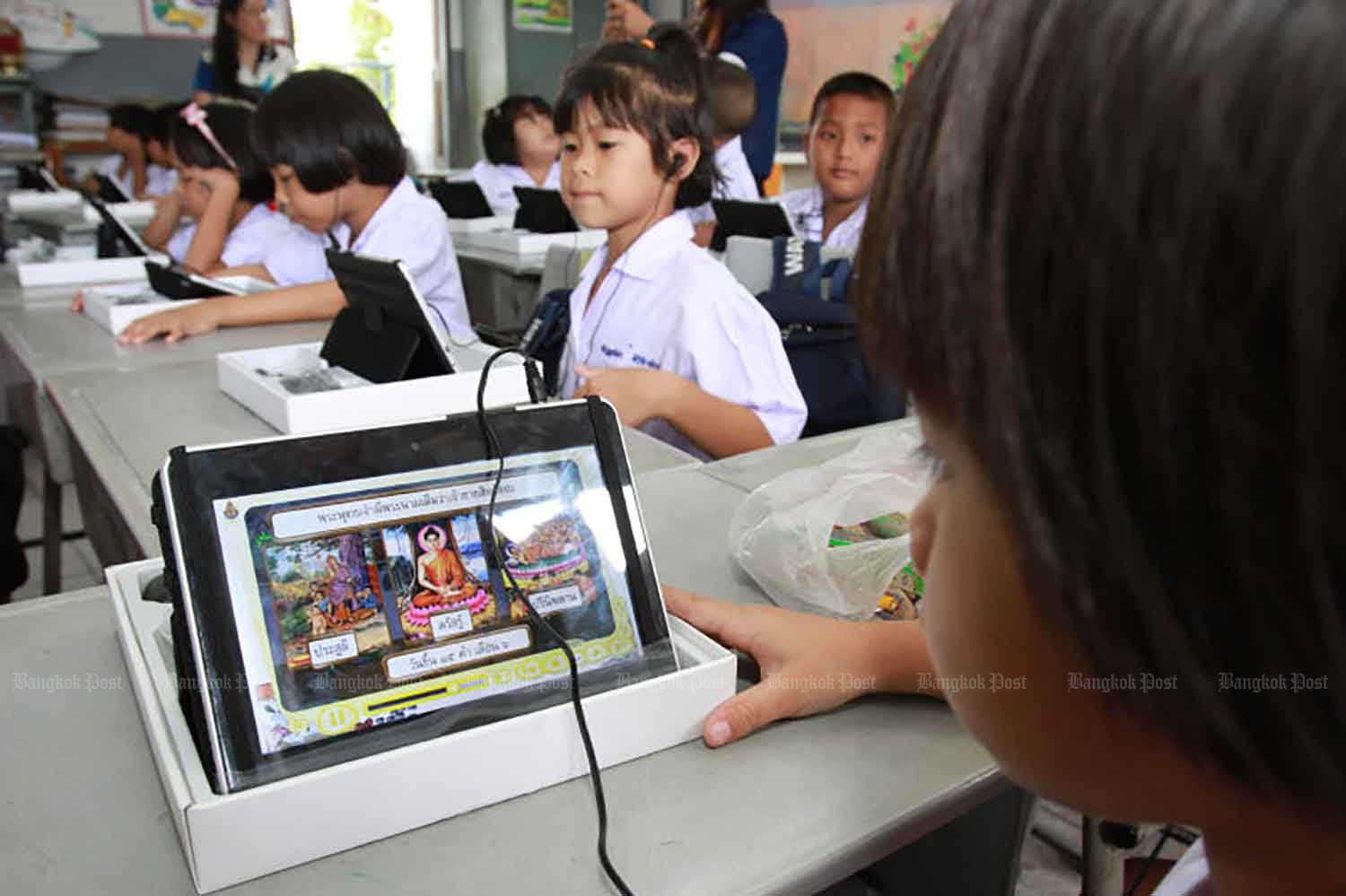
The Ministry of Education is preparing to revive a programme — first carried out by a previous Pheu Thai government a decade ago — to provide all students and teachers nationwide with one tablet computer each to promote equal opportunity in education.
The plan was one of several announced on Thursday by Education Minister Permpoon Chidchob and his deputy Surasak Phancharoenworakul, both from the Bhumjaithai Party in the Pheu Thai-led coalition.
Speaking at meeting of ministry officials, the ministers said their goal was to promote “good learning, with happiness”.
Pol Gen Permpoon said he also intended to reduce the burdens of teachers and educational personnel by shortening the process of evaluating their academic performance, allowing them to voluntarily return to their home provinces, eliminating position-buying and solving teachers’ debt problems.
He said every student would also be provided with a tablet to cut their expenses and reduce disparities in opportunities for education under the “one student, one tablet” platform.
Pol Gen Permpoon said he was still reviewing how much the programme would cost. If the existing budget is not sufficient, tablets might be acquired through borrowing or rental, he said.
The “one student, one tablet” programme was first proposed by the government of former prime minister Yingluck Shinawatra in 2011. Distribution of tablets to 860,000 Prathom 1 (Grade 1) students began in mid-2012 with a budget of 1.7 billion baht.
At the time, there was considerable scepticism about the cost and practicality of the programme. The durability of cheap Chinese Android-based tablets was also called into question.
A survey carried out by the National Statistical Office (NSO) after the first year identified some problems, including faulty devices, anti-social behaviour and deteriorating handwriting skills.
However, most executives and teachers said they were satisfied with the policy overall. The NSO survey reported that 99% of the classrooms that received the tablets used them. Teachers found the tablets especially effective in improving language skills, both English and Thai.
On the downside, nearly 9% of tablets supplied had hardware problems. These included broken screens, charging problems and incomplete or wrong software installed.
The tablet programme was renewed for a second year but later cancelled by Adm Narong Pipattanasai, a former navy commander who took over as education minister after the military coup in 2014.